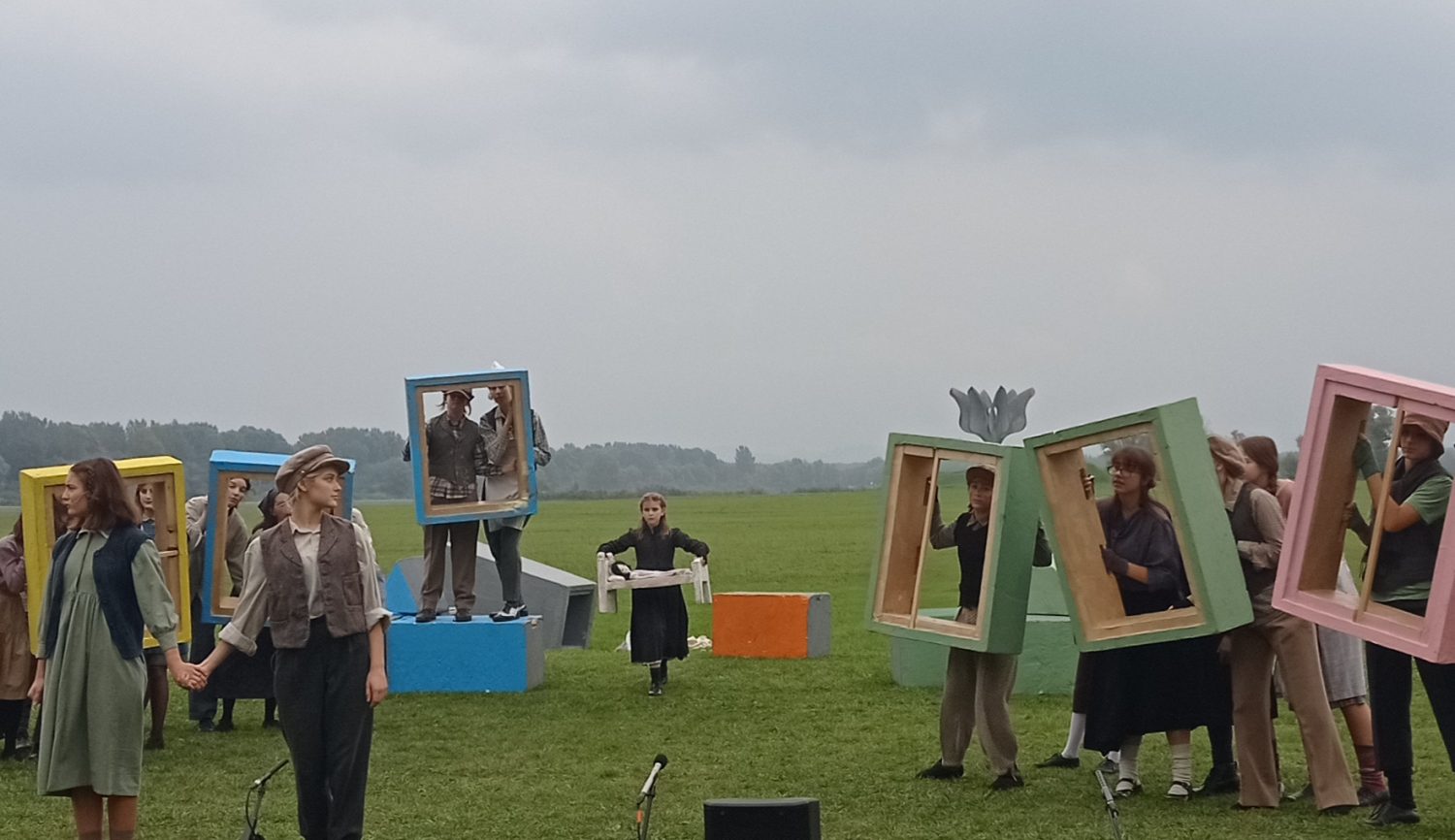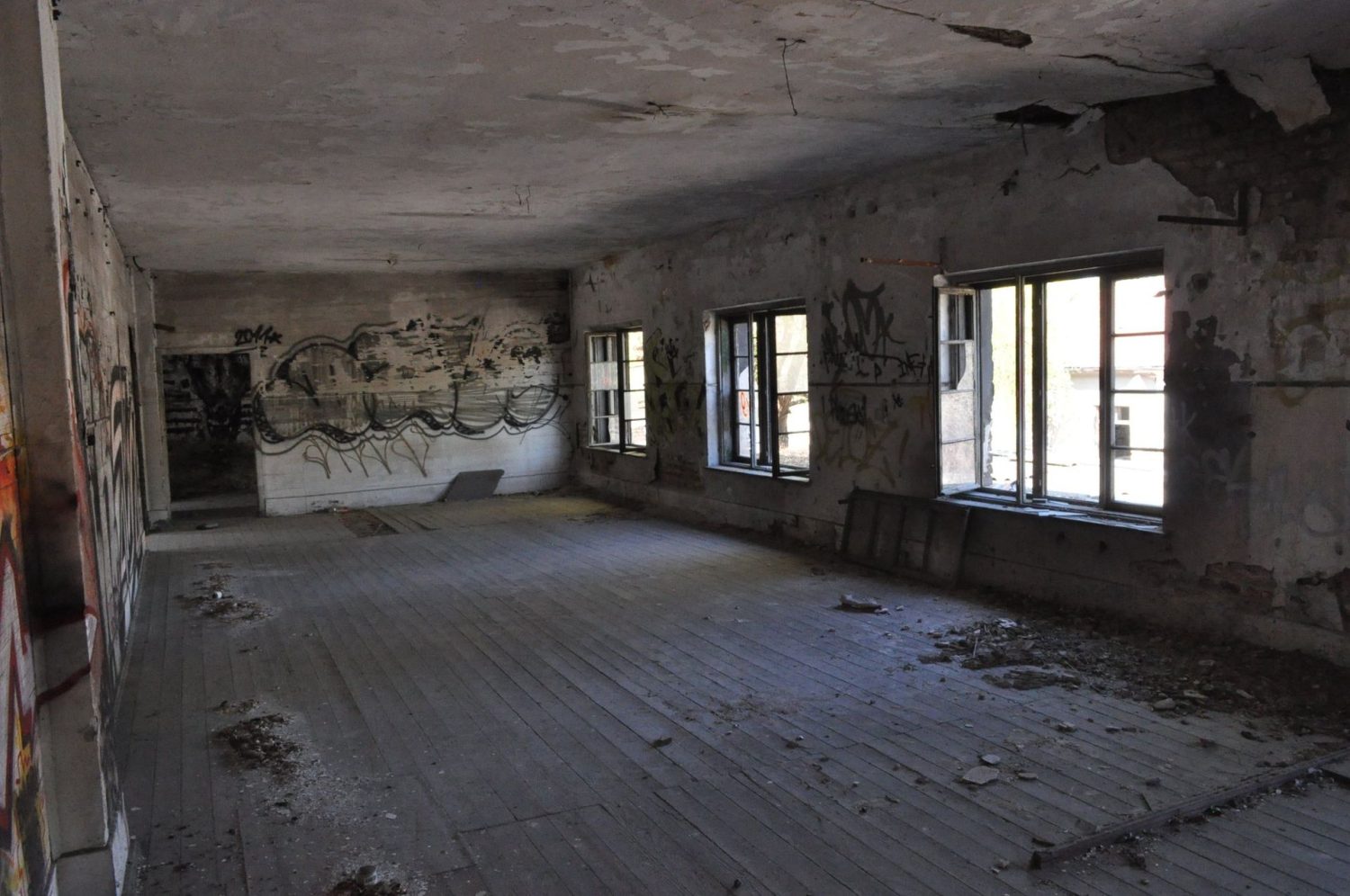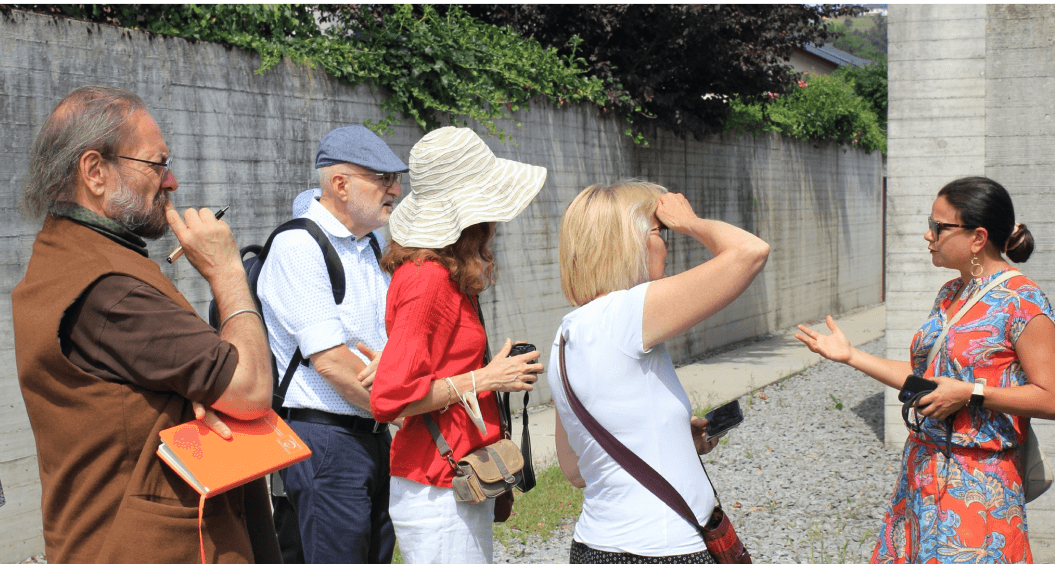
From the archives: Pig farming on the site of the former concentration camp for Roma
On 12 July 2016, an IHRA delegation including the Romanian IHRA Chair, Ambassador Mihnea Constantinescu, attended high level meetings in the Czech Republic to discuss the future of the former concentration camp site of Lety u Pisku where a pig farm stood. Martina Maschke, Chair of the IHRA Committee on the Genocide of the Roma, and Mirjam Karoly, ODIHR's Senior Adviser on Roma and Sinti Issues, formed part of the delegation and reflected below on their visit to the site.
The disturbing case of Lety U Pisku, Czech Republic
Mirovice is a small town close to the village of Lety in South Bohemia. The gently rolling landscape that surrounds us on our way from Prague reminds us of the proverbial locus amoenus, the peaceful town square of Mirovice reflecting the faded glory of the Austro-Hungarian Empire. Yet Mirovice and Lety share a dark secret which unveils itself only if you talk to locals who speak up, seeking justice for their communities. Cenek Ruzicka, Czech Sinto and the son of a survivor, is one of them. In the small, peaceful cemetery of Mirovice he leads us to a row of little teddy bears sitting next to the exterior wall. The place shelters the bodies of dozens of Roma children. On the opposite side, in another mass grave, rest the mortal remains of adults.
Cenek Ruzicka lights candles and tells us in a soft voice about the fate of the men, women and children. Most of them died in the early 1940s from malnutrition, typhus and exhaustion in the so-called “Gypsy camp,” Lety u Pisku, a forced labour camp 5 km from Mirovice. Only few survived. One of them was his mother. It was a miracle, he says. We listen in silence and look at the teddy bears which have never been in the hands of those children, to comfort them.
Cenek tells us of his struggle to ensure dignified remembrance on the victims of the former camp Lety u Pisku. There are still many missing facts and little awareness about this dark history among the general public in the Czech Republic. Only a very small number of the pre-war Roma population survived and of those, only few remained to give evidence.
We travel on to Lety. Approaching the memorial site, we are suddenly confronted with the overpowering smell of ammoniac as we pass by an industrial pig farm. We are told that the farm was established in the early ’70s on the exact site of the former concentration camp and its mass grave. The disturbing smell of the pig farm also follows us when we visit the nearby memorial site.
Cenek Ruzicka walks us around the memorial. It is an important symbol for the recognition of killings and persecution of Roma during World War II. The construction of the memorial which was unveiled by Vaclav Havel in 1995 is partly a result of Cenek Ruzicka’s tireless efforts to make the history and persecution of his community known to a wider public. But his decade-long fight for the dignified commemoration of the camp’s victims has not yet ended. Before we leave, he implores us to help find a solution for the removal of the pigs.
Appalled by the situation on the ground and haunted by the cynical smell of the farm, we climb into the bus and return to Prague where we have meetings with the two responsible Ministers, Jiri Dienstbier (Minister for Human Rights) and Daniel Herman (Minister for Culture). The IHRA Chair, Ambassador Contantinescu, who was part of the IHRA delegation on the site visit, expressed deep concern about the state of affairs and urged the Czech authorities to ensure that immediate steps were taken to initiate the removal of the pig farm. He stressed that this was the second IHRA visit to the site and that it was necessary for there to be concrete signals of change underway before the end of the current IHRA Romania Chairmanship in March 2017. He also underlined the readiness of the IHRA to support the Czech Republic in finding a solution. The aim of our visit was to make the strong point to the Czech authorities that the IHRA, the foremost international network of political leaders and professionals on Holocaust-related issues, will not accept the continuing desecration of the dignity of the Roma victims of Lety.
Martina Maschke was Head of Department for Bilateral International Affairs and Holocaust Education at the Austrian Ministry of Education. She was a member of the Austrian delegation to the IHRA and at the time Chair of the IHRA Committee on the Genocide of the Roma.
Mirjam Karoly was the Chief of the Contact Point on Roma and Sinti of the OSCE’s Office for Democratic Institutions and Human Rights. ODHIR is one of the IHRA’s seven permanent international partner organizations.
Sign up to our newsletter to
receive the latest updates
By signing up to the IHRA newsletter, you agree to our Privacy Policy




